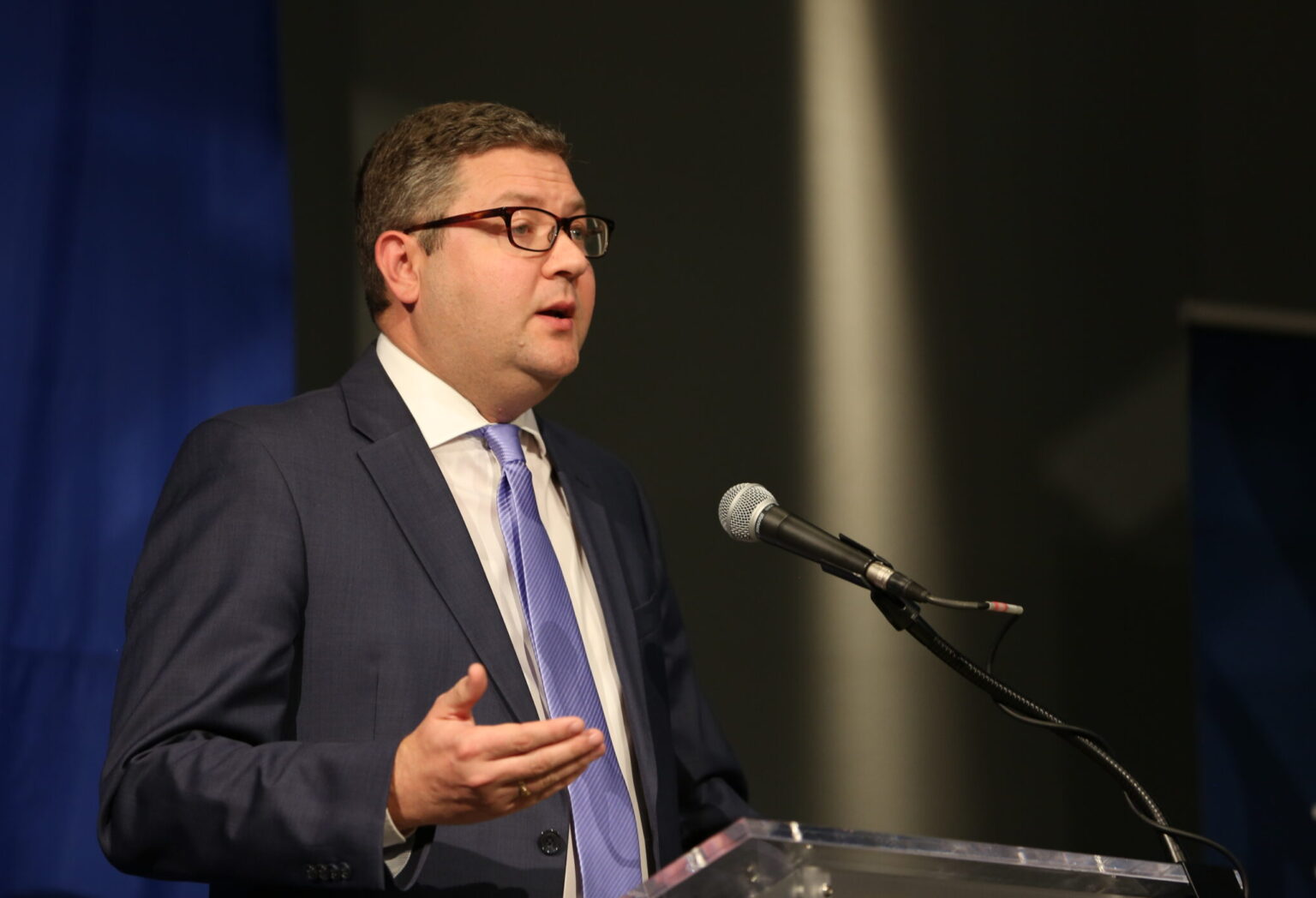
Seth Tupper, South Dakota Searchlight
Supporters of work requirements say they’re a reasonable modification to Medicaid expansion. Opponents say they’re an unnecessary bureaucratic burden on people who need health care.
Voters have a choice between those two perspectives as they consider Amendment F, one of seven statewide questions on South Dakota’s Nov. 5 general election ballot.
Medicaid is a federal-state health insurance program for people with low incomes. In the past, Medicaid was not available to able-bodied adults younger than 65, unless they were below the poverty line and had young children.
In 2022, South Dakota voters expanded Medicaid eligibility to adults with incomes up to 138% of the poverty level. The expansion is now part of the state constitution and can only be altered by voters. It includes a ban on “greater or additional burdens or restrictions” such as a work requirement.
Earlier this year, legislators decided to put a constitutional amendment on the ballot this fall. Amendment F would allow lawmakers to consider a work requirement if the federal government permits it. The Democratic Biden administration does not allow it, but future Republican presidents might.
Rep. Tony Vehhuizen, R-Sioux Falls, was a prime sponsor of the bill that sent Amendment F to voters. The measure “is not about establishing a work requirement,” he said during a September debate in Mitchell.
“It’s about removing a prohibition that’s in our constitution,” he said.
While that’s true, a bill to impose work requirements would likely succeed under the current and foreseeable political conditions in South Dakota. Many Republican legislators support a work requirement, and 90% of legislators are Republican, as is the governor.
Venhuizen said those who can work their way off Medicaid should be encouraged to do so.
“I think we have social programs to give people a hand up, help them get back on their feet, help them become self-supporting again,” he said during the September debate.
Legislators could include exceptions for people such as cancer patients, students in higher education, and those caring for young kids or sick relatives, he added.
Amendment F’s critics say a work requirement would do more harm than good.
Democratic former legislator Mel Olson, who now works for KMIT Radio in Mitchell, spoke critically of work requirements while asking questions during last month’s debate. Olson said imposing a work requirement would enlarge state bureaucracy with new employees, regulations and enforcement mechanisms.
Venhuizen replied that South Dakota has administered work requirements in other social programs, “so I’m very confident we’d be able to do it in an efficient way.”
Olson also said South Dakota’s unemployment rate of about 2% suggests nobody is “freeloading.” A 2021 national analysis by KFF, a nonprofit formerly known as the Kaiser Family Foundation, found that 61% of Medicaid enrollees from ages 19 to 64 were working full- or part-time. Thirty percent were not working because they were caregivers, were ill or disabled, or were attending school. The remaining 9% were retired, unable to find work, or not working for another reason.
Two states, Georgia and Arkansas, have imposed Medicaid work requirements. Georgia is not a typical Medicaid expansion state, having conducted a more limited expansion of eligibility than the one allowed by the federal Affordable Care Act. The Commonwealth Fund, a private foundation focused on health care, reports that Georgia’s “stringent requirements for documenting and reporting work hours” have held new enrollments far short of the state’s expansion projections.
A judge invalidated Arkansas’ work requirements in 2019 after the Trump administration approved them. The administration failed to adequately consider how the requirements would affect Medicaid’s core purpose of providing health care for needy people, the judge ruled.
During the nine months that the Arkansas requirements were in effect, about 18,000 enrollees lost coverage, according to KFF. The Commonwealth Fund said survey research revealed many enrollees “found the reporting process confusing or inaccessible, and nearly a third of the target population was unaware of the policy altogether.” People who lost coverage reported delaying care, skipping medications and incurring medical debt, the foundation said, and there was no increase in employment among the target population.

Shelly Ten Napel, CEO of the Community HealthCare Association of the Dakotas, called the Arkansas work requirements “an abject failure” during the September debate in Mitchell.
She predicted a similar outcome for work requirements in South Dakota, saying they would hinder efforts to enroll people under the voter-approved expansion.
“We need to head in the right direction, versus rolling this back and implementing a policy that has been proven to keep people from the health care that they need,” Ten Napel said.
Venhuizen countered that “there really hasn’t been a state that has had the time to get a Medicaid work requirement off the ground in an expansion program and have time to make it work.”
Approximately 145,000 South Dakotans are enrolled in Medicaid, including about 27,000 who’ve enrolled via expanded eligibility. The state’s current annual budget for Medicaid is about $2 billion, with 70% of the funding from the federal government.
